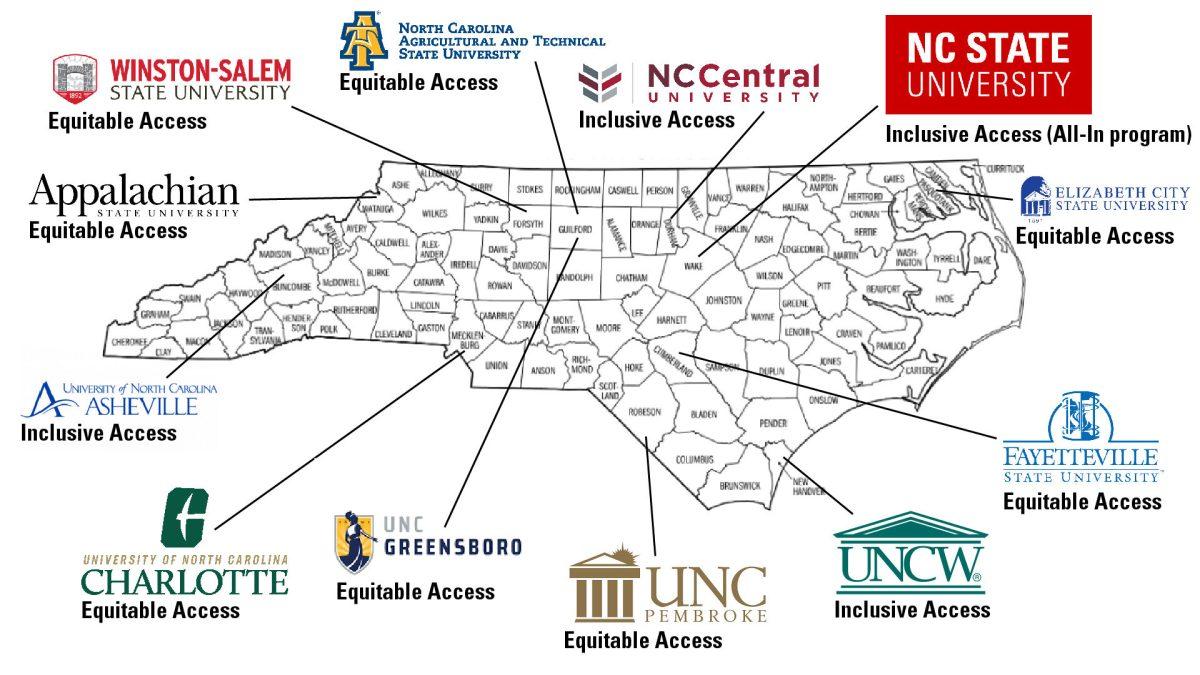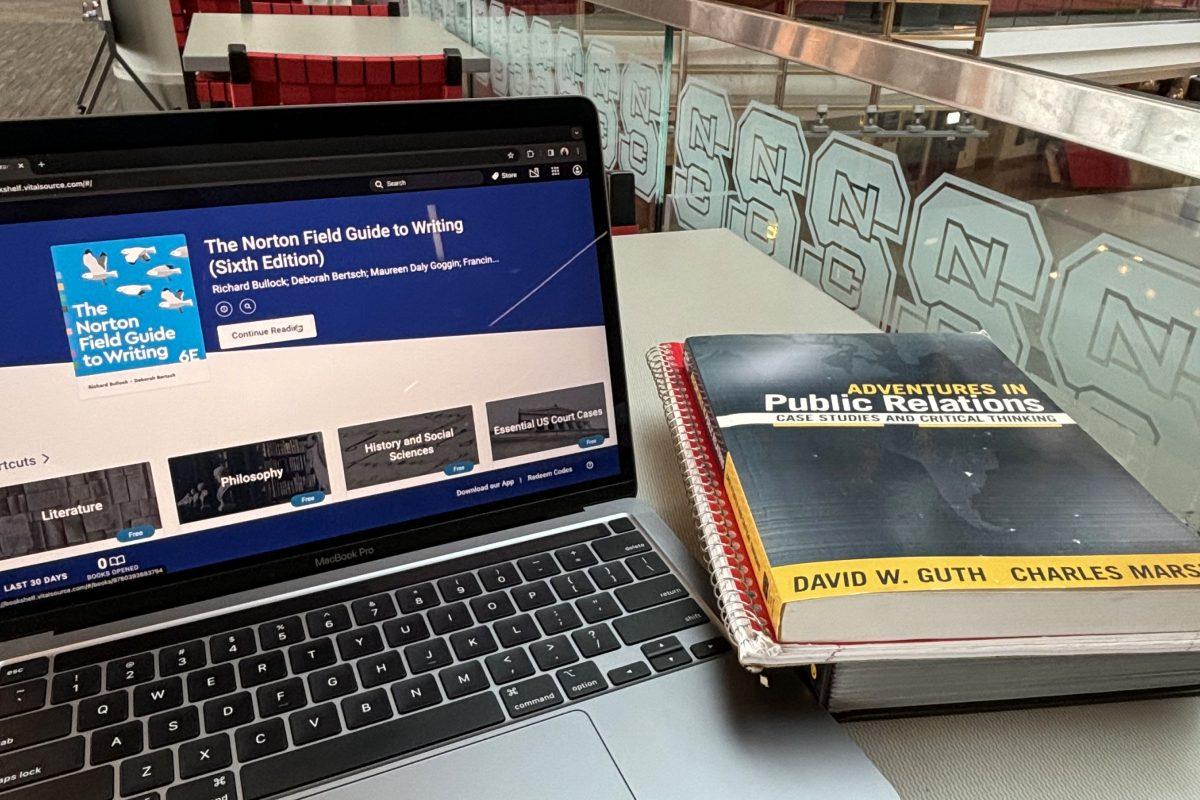As digital coursework has become increasingly popular in universities, the course materials transition group at NC State, consisting of student representatives, faculty representatives, business representatives and administrative representatives, has been exploring inclusive versus equitable access digital course material models.
Jeff Halliburton, senior director of Auxiliary Services, is responsible for providing services to enhance the educational environment.
“The goal of both that concept of inclusive access and equitable access is, ‘How do we get more course materials to more students earlier in the semester for less money?’” Halliburton said.
The All-In access program, sometimes referred to as inclusive access, began at NC State in 2018 and ensures information from the instructor is accessible to students at the start of classes, regardless of purchase.
“On the front side, it takes some of that shopping burden off by having those materials available,” Halliburton said.
Students then have a two-week opt-in period to access the course materials and choose which materials they want to purchase for the remainder of the term. The purchases and prices vary depending on the course and materials.
Halliburton said for the All-In program, NC State always tries to match or beat what is considered national pricing, and how many students purchase a specific course material can affect that price.
“If more students in the All-In program are choosing to purchase that book, we’re able to make sure that we can drive that price down, just because we are selling more content and getting more content into students’ hands,” Halliburton said.
Universities across the country use different models of inclusive access programs, but other institutions in the UNC System have adopted a model of equitable access. Halliburton said an equitable access program ensures that, for a fixed price, students have access to all the materials needed for all their courses on the first day of class.
With equitable access, students do not choose which course materials to purchase, but rather pay the flat fee and have access to all materials needed for the term.
Equitable access models differ from university to university, Halliburton said.
“So at App State, I think they’re $270 per semester for all of the materials,” Halliburton said. “Every model has a little different spin to it.”
Olivia Thomas, a first-year studying elementary education, said she prefers to use the All-In program instead of physical textbooks, but she was interested in the equitable access program model.
“If I need it for one night’s worth of homework, I don’t want to have to go out of my way to buy it,” Thomas said.
Thomas said using online resources for course materials is more manageable for her.
“I used a lot of hard copy textbooks in high school; we were very traditional,” Thomas said. “Everything was pen and paper, hard textbook, and they were just so heavy, and now everything’s online here, and it’s much easier just to have everything in one place.”
Halliburton said data has shown that course completion rates have benefited since more students are accessing the material easier through both equitable and inclusive access models.
The NC State course materials transition group will continue exploring different models to find what works best for the students and institution, Halliburton said.
“We’re here to support that faculty choice and make sure that you as a student have the materials that match their teaching style and flow with the class,” Halliburton said.














